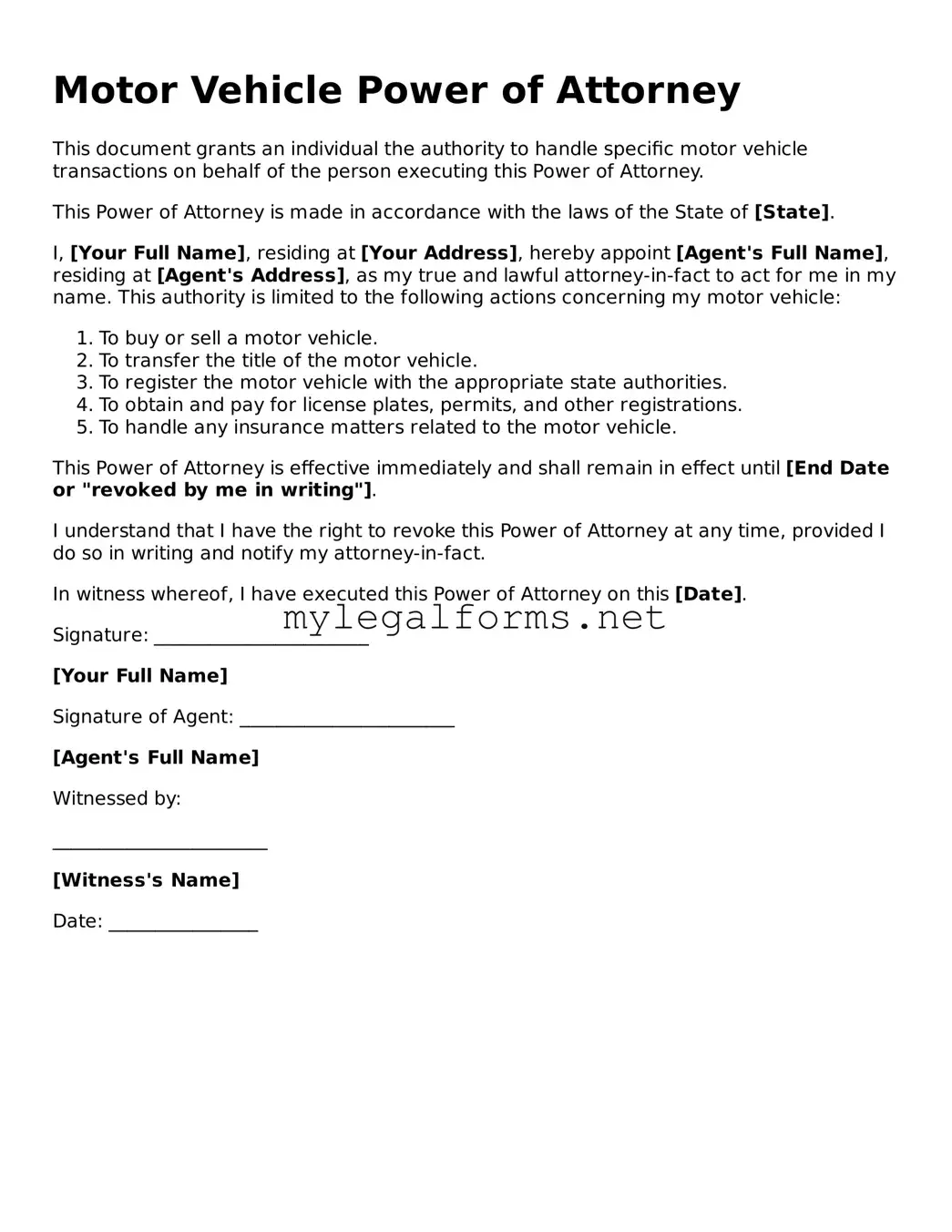Attorney-Approved Motor Vehicle Power of Attorney Form
The Motor Vehicle Power of Attorney form is a legal document that allows an individual to appoint another person to act on their behalf regarding the management and transfer of a motor vehicle. This authority can include tasks such as signing titles, registration, and other related paperwork. Understanding this form is essential for anyone looking to delegate responsibilities related to their vehicle efficiently.
Launch Motor Vehicle Power of Attorney Editor

Attorney-Approved Motor Vehicle Power of Attorney Form
Launch Motor Vehicle Power of Attorney Editor

Launch Motor Vehicle Power of Attorney Editor
or
⇓ PDF Form
Complete the form at your pace — fast
Finish your Motor Vehicle Power of Attorney online and download the final version.